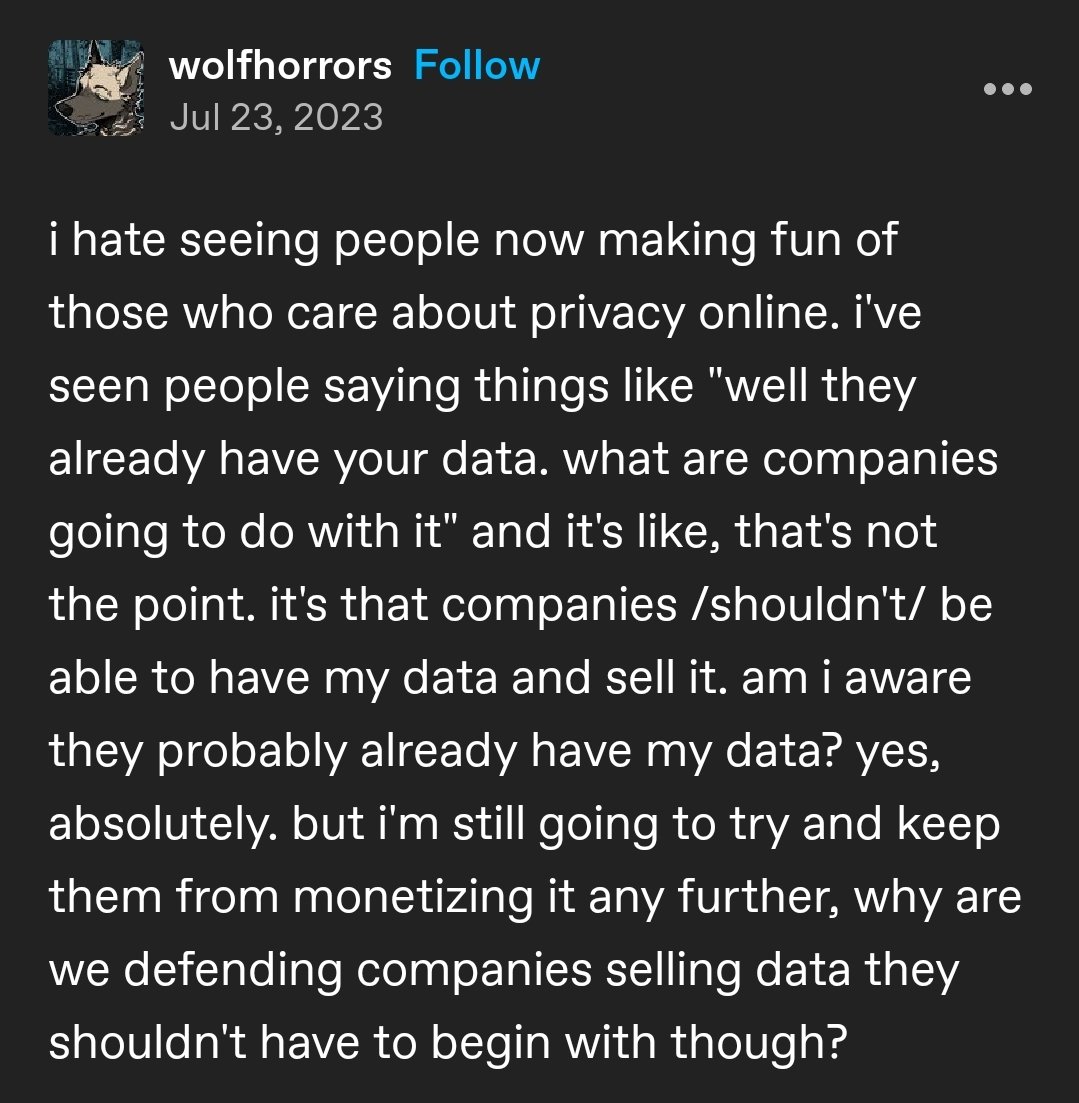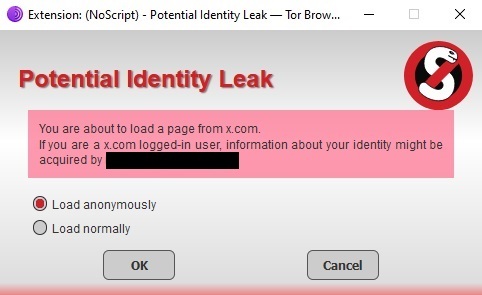@Zagorath@aussie.zone wanted to know, should you expect privacy in public places?
Before I answer that, I would like to give my genuine thanks to everyone who responded in my previous post where I asked you for some controversial privacy topics. You did not disappoint, and I'm glad I will be able to cover them!
This question is a bit complex, depending on how you ask it. The answer also largely depends on what you believe. If you believe that privacy is a fundamental right, then privacy should be expected no matter where you go. If the question is "Can you expect privacy..." versus "Should there be privacy...", the answer changes dramatically.
Is there currently privacy in public spaces?
In many places, there is little to no privacy when you walk out the door. With Ring doorbells latching on to every home like a parasite, or security cameras clinging to the ceiling of every store you walk inside, surveillance is everywhere. This section won't cover whether or not surveillance is moral/ethical/justified, but either way surveillance infringes on privacy. Even with no surveillance cameras, Sarah-from-down-the-street is always on a video call with her bestie.
Saying "privacy in public" is a bit of an oxymoron, since no matter what you will always give up a little privacy the moment you walk out the door. Things you do privately in the bathroom are simply not allowed in public places.
Should there be more privacy in public spaces?
Now may be a good time to clear up a common misconception. What is privacy? Privacy does not mean obscuring every detail of your life. Privacy is the ability or choice to share or hide information about yourself. That is why surveillance cameras infringe on privacy: You have no control over what they record, who has access to those recordings, and what those recordings will be used for.
That sort of answers the question, too. If you believe privacy is a fundamental right, then there should be an expectation of privacy in public spaces, and so a reform needs to happen.
What are the real effects of privacy in public spaces?
People act differently when they know they are being surveilled. See the Panopticon for an experiment about that. It has negative effects, whether people realize or not.
@Sauerkraut@discuss.tchncs.de told a story that I particularly love:
"Just last week, my partner and I were on a long hike. No one was around us so to loosen our muscles we started dancing like goofballs on the trail only to look up and find a drone hovering in the shadows recording us. I was embarrassed, but my partner is a very private person and was really upset. [...]"
When they expected to be in a secluded, private space, they freely expressed themselves. The moment they realized that someone had been watching, they became embarrassed or upset, like a switch had flipped. That is the real affect surveillance has on us. We express ourselves less freely, we conform to rules without question out of fear. Surveillance becomes a form of oppression on a wide scale.
I even have my own anecdote. I once took a trip to a small town. When I got there, I subconsciously looked around for security cameras. I do that to gauge how much privacy I currently have. I then noticed that I couldn't see any obvious security cameras. I stopped and looked around harder. The town had not a single security camera in sight. I have almost no way to describe the sense of calm and relaxation that washed over me. It felt like someone giving you a massage after being stressed all week, or finally being honest with everyone about a secret you've been keeping. It was such a nice feeling to walk around a town privately.
Why do we have surveillance?
The main justification for these surveillance measures is to prevent crime. It makes sense intuitively, if you have an eye on every corner you can catch any criminal easily. However, it ignores one massive flaw: criminals will always find a way to do things privately. If you make privacy illegal, it doesn't change anything, because criminals won't follow the law anyways.
I have my own quote about this, that I love very much: “Unjust laws only burden the just, as the lawless will not heed them.” Removing privacy only hurts the people who will follow and abide by the rules. You're removing the privacy of the good people, while the criminals will program "illegal" software to achieve privacy. Giving privacy to everyone means that, yes, it makes criminals' jobs easier, but it means we can shift to actually solving the problems that cause the crimes in the first place. "The best way to conquer bad ideas is with better ideas, not by suppressing ideas." - Naomi Brockwell
"The optimal crime rate is not zero. We can't burn down the entire world just to stop somebody from stealing a pack of gum. The cost is too high. There is a percentage of crime that is going to exist. It's not ideal, but it is optimal." - Nick We need privacy for a free society. Surveillance is not the answer for fighting crime. There are ways to combat crime without infringing on privacy.
Is blurring your house on the map unreasonable?
This question is another one brought up by @Zagorath@aussie.zone. Blurring your house is a way to achieve some privacy, and in that scope, it is good to do. However, as @RiderExMachina@lemmy.ml points out, it could cause someone to do the opposite and start looking closer into why your house is blurred. That's called the Streisand effect.
Site note: I find it hilarious why the Streisand effect is named how it is. The story goes that Barbra Streisand tried to hide her place of residence by suppressing a photograph that had made it to the public. That, of course, had the opposite effect, drawing more attention to the photograph and her residence. Then, even more attention was drawn, because the Streisand effect got named after her and the very same image is now plastered on Wikipedia.
Unfortunately, blurring your house on the map doesn't provide much privacy, since the organization who photographed it still has a clear picture of it. It doesn't stop the surveillance. It's not unreasonable to blur it, though. You should still want privacy against the Streisand effect. The best solution would be a quiet legal take down of the images altogether.
I have another story to go along with this. I got a job, and it was later revealed in conversation to me and my coworkers that our boss likes to look up everybody's address on Google Street View. Everyone was uncomfortable with that, but our boss saw no issue with it. This is a legitimate case where blurring your house is a good idea. Sure, people may try to ask you why it's blurred, or try to look up pictures on other sites like housing retail, but it still prevents (frankly, creepy) bosses from snooping at your home.
Conclusion
Privacy is a fundamental part of our lives, and surveillance infringes on that. We should all do our part to gain what privacy we can, because every bit of privacy you gain now is freedom you will have in the future. This was a lot of fun to write, and I thank @Zagorath@aussie.zone and all of you for your suggestions. I will continue to tackle each of the topics asked in the previous post one by one.
Thank you for reading!
- The 8232 Project





